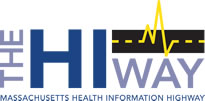
Home health care agencies provide skilled nursing care, as well as other care services such as physical and occupational therapy, speech-language therapy, and medical social services. The demand for home health care has grown as medical science and technology has improved and treatments that could previously only be completed in a hospital can now be administered at home.
Home health care staff provide therapy as directed by the patient’s physician and assist with the coordination of care. The staff will typically create a plan of care and keep the physician updated on the patient’s status, potential issues, and concerns.
Home health care can consist of short- and long-term care. The goal of short-term home health care is to provide treatment for an illness or injury. Long-term home health care aims to maintain the patient’s highest level of ability or health, and assist in helping the patient learn to live with the illness or disability within the comfort of their home.
Challenge

Home health caregivers are tasked with ensuring that the directives of patients’ physicians are carried out, and helping patients be as self-sufficient as possible. To that end, maintaining swift and accurate communication with physicians is vital to help the caregiver do their job correctly.
Many home health care agencies still rely on fax machines, phone calls, and personally hand delivering critical medical documents between the hospital or health center and the agency, and the patient’s provider and the caregiver.
These labor-intensive methods can be challenging, and faxing documents can be prone to transmission errors. Medical documents are often time sensitive and engaging in phone calls can result in long wait times for responses. Home health caregivers may not receive necessary documents such as physician orders, progress notes, and summaries in a timely fashion.
Solution
Developing a secure Direct Messaging connection between hospitals, medical practices, community health centers, and home health agencies can mitigate many of these concerns. Setting up this connection can be achieved by using the organizations’ Direct Messaging solution within their EHR system or by utilizing Mass HIway webmail.
Implementing an electronic workflow between the hospital and the home health agency allows the agency and its caregivers to receive accurate documents more quickly than faxing or phone calls. Caregivers are able to receive the relevant home health care documents in a timely fashion, allowing them to act swiftly and according to the provider’s instructions.
This electronic process eliminates the need for caregivers to pick up hard copies from the home health care agency’s office or to go directly to the provider, and ensures that all information is accurate and received in a timely and secure manner.
Benefits

Home health care agencies offer many benefits both for the patients as well as the providers. Patients are more comfortable at home, and family caregivers are more easily able to support them. Delivering important medical care in the home also frees up hospital and health center resources that may be needed to provide care to other patients. Having a well prepared caregiver visiting the patient in the home also ensures that the proper medical procedures will be followed, and reduces the likelihood of re-admittance to a hospital.
Implementation
Home health care agencies work diligently to provide clients with high-quality and cost-effective care. Many agencies would like to collaborate with hospitals, medical practices and community health centers to design and implement electronic flows of information to further enhance patient care.

Boston Home Health Aides, a Medicare/Medicaid certified home health care agency, accredited through the Community Health Accreditation Program (CHAP), is actively pursuing such collaboration with healthcare organizations. The agency offers in-home services including skilled nursing, physical and occupational therapy, and other care.
Currently, the agency must first collect the necessary documents from clinicians through faxing, phone calls, and physical office visits, before they can disseminate the relevant documents to each caregiver. The organization is using its existing Mass HIway Webmail connection to transition to an electronic workflow which would allow them to receive the documents directly. This would reduce travel and time delays, and fax or phone transmission errors. Getting the documents in a more timely fashion would allow the caregivers to spend more time working directly with their clients.
Moving Forward
Boston Home Health Aides is working with the HIway Adoption and Utilization Support (HAUS) services team to initiate HIway connections with key healthcare organization partners. The HAUS team provides project management and HIway expertise at no cost to the healthcare organization as part of the Mass HIway’s commitment to increasing the secure and efficient exchange of health information in the Commonwealth.
Boston Home Health Aides, and other home health care agencies, may need assistance in identifying new trading partners with whom to trade. If your healthcare organization is interested in working with these home health care agencies to set up an electronic exchange of care documents, please contact the Mass HIway at masshiway@state.ma.us.
